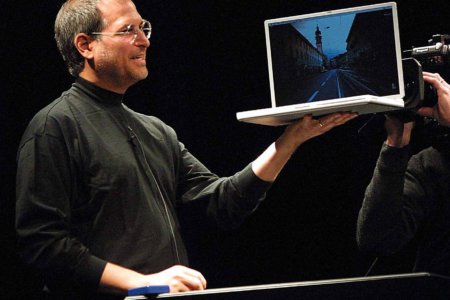
Remember the 2020s? The start of the COVID-19 pandemic. Kitchens became cafés with Dalgona coffee. And somewhere in between all that? Computer science degrees started trending too.
“At the time, there were three big trends in Indonesia,” says Gregorius Hans Andreanto from Jakarta, Indonesia. “Computer programming, investing, and cryptocurrency. I was too young to invest, and crypto felt like a scam. But it was so boring staying at home, so I started learning Python.”
And that was the start to Andreanto’s fall down that rabbit hole.
That curiosity led him to join a computer science club at Canisius College, where he learned C++, a general-purpose programming language commonly used in game development, and even met an International Informatics Olympiad winner.
By his high school graduation, the initial plan to pursue civil engineering was no longer on the table. Instead, he headed to Malaysia to pursue a BS in Computer Science at Taylor’s University.

Andreanto with his friends from Taylor’s University. Source: Gregorius Hans Andreanto
From one side of the world to another
Malaysia hadn’t exactly been Andreanto’s first choice.
He had just missed out on the entry requirements for a computer science programme in Hong Kong and had been looking for other options. That was when an education agent suggested he check out Taylor’s University.
“It was one of the few institutions still open for admissions during COVID-19, and the opportunities were quite attractive,” says Andreanto.
The first of these opportunities was Agents of Tech, a club that hosted and offered competitions and workshops to get members equipped with the 21st-century tech skillset. In Andreanto’s words, “It’s a great environment if you want to keep learning and challenging yourself.”
The second reason he chose Taylor’s? The chance to join the exchange programmes to Japan, South Korea, China, or even a little further.
Andreanto’s exchange took him all the way to the Netherlands. More specifically, he spent six months of his degree at the Saxion University of Applied Sciences.
“Europe is known for more advanced studies, and that’s definitely true,” says Andreanto. “At first, I thought I could handle it the same way I managed my studies at Taylor’s. But it was tough. For my first final project, I scored 57 out of 100 — and the passing mark was 55.”

At first, making friends in the Netherlands wasn’t easy for Andreanto. But before long, he found a fun bunch of international friends who were always up for grocery shopping trips or board game sessions. Source: Gregorius Hans Andreanto
Academics aside, adjusting to life in a new country came with its own set of surprises.
“It was easier to make friends in Malaysia,” he says. “The people in Malaysia are super friendly, and even if there’s a language barrier, Malaysians are still willing to hang out and be friends.”
“In my first class in the Netherlands, I tried to talk to the locals, but once they realised I was an exchange student, one guy even said, ‘Oh, you’re an exchange student? Go talk to that guy (another international student).’”
Fortunately, things improved over time, and Andreanto was able to make friends with those from the Netherlands and other international students from Spain, Belgium, Albania, and France.
One other memorable moment for Andreanto was during the start of his classes at Saxion, when he had yet to adapt to the six- to seven-hour time difference, resulting in him missing a few classes.
“Luckily, Saxion doesn’t take attendance,” he laughs. “As long as you understand the content, it’s okay. Classes are more for asking questions or interacting with lecturers.”
That does lead us to an important question: is it worth going to university for a computer science degree, or is a coding bootcamp the better route?

Hans and his team at his first hackathon win. Source: Gregorius Hans Andreanto
Computer science degree vs bootcamp — which one is more value-for-money?
Coding bootcamps are often seen as a fast track to high-paying tech jobs. According to a Forbes Advisor Coding Bootcamp Sentiment Survey, 38.6% of bootcamp graduates reported earning US$10,000 to US$30,000 more post-graduation.
Fellow Malaysian Deric Yee, founder of Sigma Schools, a three-month, affordable, accessible coding boot camp that results in you getting hired for a tech job with no experience, says, “You don’t need a degree to succeed in tech – you need skills, proof of work, and the right network.”
But Andreanto would not stray from the traditional university path.
“Bootcamps are very project-based and cover more advanced skills,” he explains. “They’re fine, but I think it’s more important to develop the basics first.”
He points out another key benefit of a computer science degree: industry exposure. “You need to build connections with professionals in the field. From what I’ve seen, bootcamps don’t really provide those opportunities,” he adds.
University life also offers a range of extracurricular activities, another element that bootcamps often lack.

While in Europe, Andreanto visited Italy, Germany and Brussels with his friends. Source: Gregorius Hans Andreanto
How to start a computer science career
While studying computer science at Taylor’s, Andreanto made every moment count.
He was the Technical Director for the Google Developer Student Club (GDSC), Technical Officer for the Charisma Movement, and Technical Lead for 6reen.
All of these experiences complemented his computer science studies and prepared him for his career.
For students looking to follow a similar path, Andreanto has a few tips:
1. Build a strong foundation
The most basic skill all computer science students will need to master is programming languages.
“Start by learning low-level programming languages like C or C++,” advises Andreanto. “Once you get the hang of their syntax and logic, picking up other languages becomes much easier.”
If you’ve mastered your basics, we have a list of programming languages worth learning for you to check out here.
2. Get started early
With the basics in place, Andreanto recommends jumping into projects as soon as possible.
“It’s 2025. We have AI to help us now. That doesn’t mean you should let AI do everything for you, but it can be a helpful guide,” he says. “When AI generates something, take the time to understand what it did and why. That’s how you keep learning and improving.”
If you’re unsure where to start, don’t be afraid to reach out to your professors or seniors. They were once in your shoes and can point you in the right direction.
Or, if you are confident in your skills, why not take on an online project? Either way, it’s all about jumping in and gaining that real-world experience.

ReClaim is a blockchain-based bottle recycling app that Andreanto developed at a hackathon. Source: Gregorius Hans Andreanto
3. Keep track of your work
Andreanto believes building a portfolio is just as important as gaining technical skills.
“Keep a portfolio that highlights your projects and the skills you’ve developed,” he says. “Joining competitions like hackathons is a great way to build this up. They push you to create real, functional projects you can show to recruiters.”
“And if competitions aren’t your thing, you can still start your own projects in your free time. What matters is that you’re creating something and documenting it.”
Andreanto’s favourite project so far is a blockchain-based recycling app he developed during a hackathon.
“I was inspired by my time in the Netherlands,” he explains. “There, you can recycle plastic bottles or cans and get money back. So for the hackathon, we built a smart recycling bin with image recognition that could distinguish between different materials — plastic bottles, cans, cartons — and award users digital coins based on what they recycled.”
But while hackathons are exciting and rewarding, he also warns about the risks of overcommitting:
“I joined too many competitions while juggling my final-year project with my supervisor. It just became too much.”
Most hackathons last one to two weeks, beginning with ideation before moving into the development stage. But some are even more intense.
“I once joined a 48-hour hackathon at Taylor’s,” he says. “We stayed on campus coding the whole time. No sleep for two days was exhausting. Some people were so tired, they just started shouting.”
Despite the challenges, he believes these experiences are worthwhile. “As long as you know your limits, you’ll be fine. In the end, hackathons and competitions help you grow, and that’s what really matters.”
4. Network
“There’s a bit of a stigma that computer science students just sit in their rooms all day coding,” says Andreanto. It’s true, but building connections outside the classroom can be just as important as mastering code.
For example, Andreanto got to work as a Junior Software AI Engineer at Pandai, after connecting with the company’s founder at a networking event.
“When you participate in extracurricular activities, you naturally improve your communication and collaboration skills,” he says. “That can make a big difference, both personally and professionally.”










